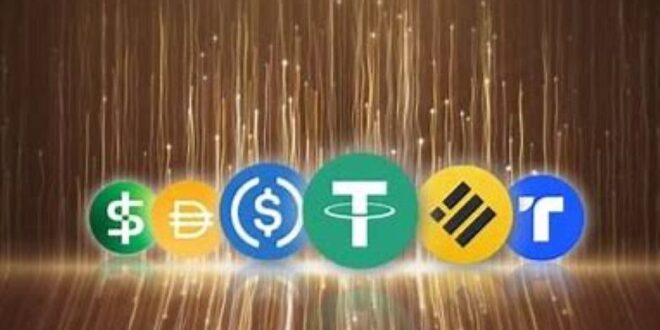In a groundbreaking move, several major banks in the Philippines have joined forces to launch PHPX, a new stablecoin aimed at revolutionizing cross-border payments. This strategic collaboration aims to streamline international transactions, reduce fees, and enhance the efficiency of remittances, which are a vital part of the Philippine economy.
The PHPX Stablecoin: What You Need to Know
PHPX is a Philippine Peso-backed stablecoin, designed to maintain a 1:1 peg with the country’s fiat currency. This ensures stability and predictability in its value, making it an attractive option for both businesses and individuals involved in cross-border transactions.
The stablecoin is built on blockchain technology, offering faster, cheaper, and more secure transactions compared to traditional banking systems. By leveraging blockchain’s decentralized nature, PHPX aims to bypass some of the limitations of the current financial infrastructure, such as high transaction fees and long processing times.
Why Now? The Push for Innovation in Cross-Border Payments
The Philippines has long been one of the world’s largest recipients of remittances, with millions of Filipinos working abroad. According to the World Bank, the country received over $30 billion in remittances in 2022 alone. However, sending money across borders often involves high fees, slow processing times, and a lack of transparency.
In response to these challenges, the partnership between Philippine banks seeks to address these pain points by creating an efficient, cost-effective, and secure digital currency solution. The PHPX stablecoin is expected to significantly reduce the cost and time involved in remittances, making it easier for overseas Filipino workers (OFWs) to send money home to their families.
The Role of Philippine Banks
The collaboration includes some of the country’s largest financial institutions, which are pooling their resources and expertise to develop the stablecoin. These banks will be responsible for ensuring that PHPX maintains its peg to the Philippine Peso and for facilitating its adoption across the country.
By partnering with traditional banks, the PHPX stablecoin can bridge the gap between conventional banking systems and the burgeoning world of digital assets, offering a familiar interface for users while leveraging the benefits of blockchain technology.
How PHPX Will Benefit Cross-Border Transactions
- Lower Transaction Fees: Traditional remittance channels often charge fees of up to 10% of the total amount transferred, especially for smaller amounts. By using PHPX, cross-border payments can be processed at a fraction of the cost, increasing the value of remittances for recipients.
- Faster Processing Times: Transactions using PHPX can be completed almost instantly, compared to the 1-3 business days typically required by traditional wire transfers.
- Enhanced Security and Transparency: Blockchain technology provides an immutable record of transactions, ensuring greater transparency and security compared to traditional financial systems.
- Increased Accessibility: PHPX is expected to be available on various digital wallets and platforms, making it accessible to a wide range of users, including those in rural or underserved areas.
Regulatory Support and Challenges
The Philippine government has expressed support for the initiative, recognizing the potential of digital currencies to enhance the country’s financial inclusion. The central bank, Bangko Sentral ng Pilipinas (BSP), has been proactive in fostering a regulatory environment that encourages innovation in the digital payments sector while ensuring consumer protection and financial stability.
However, the launch of PHPX may still face regulatory hurdles as the government continues to refine its approach to digital assets. The banks involved in the project will need to work closely with regulators to ensure compliance with anti-money laundering (AML) and counter-terrorism financing (CTF) requirements.
The Future of PHPX and the Philippine Economy
The introduction of PHPX has the potential to reshape the landscape of cross-border payments not only in the Philippines but across Southeast Asia. If successful, it could serve as a model for other countries looking to modernize their payment systems and improve financial inclusion.
Moreover, PHPX could pave the way for the Philippines to become a global leader in digital currency innovation, leveraging its strong remittance market and growing fintech ecosystem.
The collaboration between Philippine banks to launch the PHPX stablecoin marks a significant step forward in the evolution of cross-border payments. By offering a faster, cheaper, and more secure alternative to traditional remittance methods, PHPX has the potential to bring about lasting change in the way money moves across borders. As the digital currency landscape continues to develop, the Philippines is positioning itself at the forefront of this transformation, paving the way for a more inclusive and efficient financial future.
 Business Sandesh Indian Newspaper | Articles | Opinion Pieces | Research Studies | Findings & News | Sandesh News
Business Sandesh Indian Newspaper | Articles | Opinion Pieces | Research Studies | Findings & News | Sandesh News



